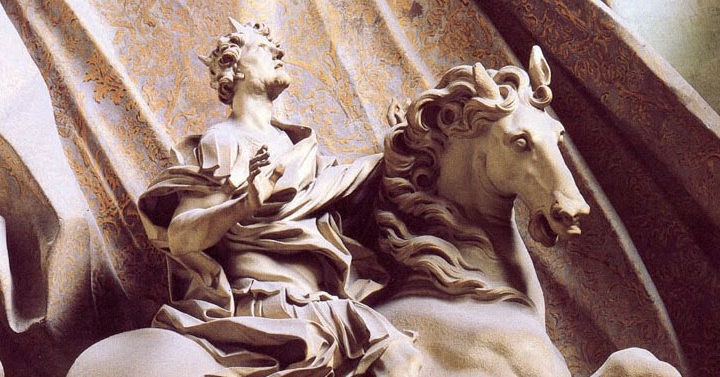The church my wife and I have served since 2000 was founded 70 years ago as a Southern Baptist mission, a church plant in a neighborhood that had just been converted from a dairy farm. The founding pastor understood his calling as an evangelist and loved to say that he was called “to save souls like fire brands from the burning.”
Charlie Milford pursued that mission of “converting the lost” until he met the iconoclastic pastor of Myers Park Baptist Church, just a couple miles down the street. That relationship with the legendary Carlyle Marney “liberated” Charlie’s theology, and a church with it.

Russ Dean
When he died 15 years ago, Charlie Milford was a staunch liberal, confirmed in his practice, convinced by his theology. And alongside all that liberal theology, his love for the church? Well, it just continued to grow. So sure was he of the church’s potential to change the world, by following the way of Jesus, he would tell you in no uncertain terms: “The church is called to die.”
He said those words to us, his pastors, many times before he died. And he never was grinning when he said so. This was conviction. Gospel truth. Thinking back over those times, I’m now not sure if I ever had the courage to respond out loud or not, but what I thought every time Charlie talked about a dying church was, “Not on my watch.” On those days when I was feeling a bit snarky, my good-humored response was probably more like, “The hell, you say!”
As I think about the church, post-pandemic, however — what it’s going to be and not be, how it’s going to look like the church it was before and how it’s not going to look like that at all, I’m returning to Charlie’s wisdom: The church is called to die.
Founded in the image and on the example of a dying Savior, it may be our only hope.
It has been a very long time since the Christian church, in any significant measure, understood that calling, much less had to practice it. For the first 300 years, the followers of Jesus lived as a cultural minority, eking out existence as a persecuted cult. They grew in number through martyrdom. They deepened in conviction through the sacrifice of every single convert to the faith. Then the emperor of the mighty Roman Empire converted, and with that overnight stamp of imperial approval, institutional Christianity was born. As the de facto religion of the state, and at the point of the sword, growth no longer was a problem. Christianity became a worldwide phenomenon, Jesus, the leader in battle, a household name.
“The church is called to die? Not with Constantine enjoying global domination with the Cross as the ensign of Empire.”
The church is called to die? Not with Constantine enjoying global domination with the Cross as the ensign of Empire.
Seventeen hundred years later, with a global pandemic bringing the church to its knees, we may have a chance to learn if that institutionalization of the church, the colonializing of the calling of Jesus, the growth of numeric Christianity, really was the providence of God or actually an extremely long detour from our true mission.
If Jesus called his followers to “take up your cross and follow,” maybe the church is also called to that same kind of life.
The church is called to die.
The problem is that dying is not award-winning marketing, not the kind of branding that sells, even if Jesus has proved it is the best way to change the world. The only way? The truth is that winning seems a lot more rewarding, and dominating, growing, being on top, being the best and the biggest, is just a lot more fun. You can build a theology around that, even quote a lot of Scripture to proof-text that position. No matter what Jesus said, partnering with power is a lot more attractive than holding hands with humility, domination much more tempting than death. We’re supposed to grow, right? “Win the world for Christ,” right? It is about global victory, right? “Every knee shall bow …”
“The truth is that winning seems a lot more rewarding, and dominating, growing, being on top, being the best and the biggest, is just a lot more fun.”
Maybe the church’s long dalliance with Constantine is coming to an end — if not voluntarily so. As the largest religion in the world, the partner of presidents, the ministry of the millions (and the millionaires), a voluntary dissolution of such prestige and position would be … suicide. Who in the world would make such a sacrifice?
But the data are definitive, and the commentators are all clear: “They’re not coming back.” And maybe the church doesn’t need them. The numbers, that is. Padded pews. Power and prestige. Maybe the loss of a culturally presumed privilege will invite the church to think again. Maybe it will invite pastors to be prophets instead of power players. Maybe it will call us to relearn the value of sacrifice instead of celebrity. Maybe it will invite an ethos of work, not wealth.
Maybe Charlie was right after all, maybe the church is called to die. On our watch.
Could it be that dying really is the only way to resurrection?
Russ Dean serves as co-pastor of Park Road Baptist Church in Charlotte, N.C. He holds degrees from Furman University, Southern Baptist Theological Seminary and Beeson Divinity School. He and his wife, Amy, have been co-pastors of Park Road since 2000. They are parents of two sons. Russ is active in social justice ministries and interfaith dialogue. He is author of the new book Finding a New Way.
Related articles:
Leaving church: Grateful confessions from a dying pastor | Opinion by Erica Whitaker
Three words of hope for the church in transition | Opinion by Mark Wingfield
They’re not coming back | Opinion by Rob Dyer


